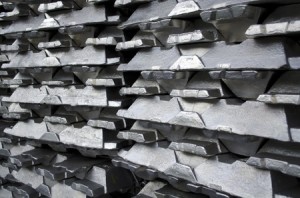How Aluminum Launched to the Top of the Industry
 Aluminum reigns supreme in today’s construction industry, but it actually wasn’t until the Empire State Building was constructed in 1931 that a major building first contained aluminum components and fabricated parts. Since then, aluminum has launched to the top of the construction industry as one of the most efficient and sustainable construction materials. In just 90 years, it’s been a wild ride!
Aluminum reigns supreme in today’s construction industry, but it actually wasn’t until the Empire State Building was constructed in 1931 that a major building first contained aluminum components and fabricated parts. Since then, aluminum has launched to the top of the construction industry as one of the most efficient and sustainable construction materials. In just 90 years, it’s been a wild ride!
The Empire State Building
During the 1920s, an electrolysis process was developed that made aluminum 80 percent cheaper to produce in high volumes, and this technological advancement made aluminum a player in the civil engineering world for the very first time. It soon became popular for smaller projects like domes and roofing, but it wasn’t until 1931 that the construction the Empire State Building really put it on the map. All of the Empire State Building’s basic structures and much of its interior contained aluminum. In fact, the fresco on the lobby ceiling and walls are composed of aluminum and 23 karat gold!
Changes Through War
By the 1940s, aluminum construction once again declined because the majority of aluminum resources were utilized to produce planes for World War II. It didn’t take long after the war for aluminum to spring right back up as a major component in the construction of high rise buildings and bridges. Soon window frames, panels, and domed roofs joined the aluminum movement.
Modern Day
In today’s construction climate, aluminum is lauded for its efficiency, sustainability, and ease of use. To begin with, aluminum alloys can support the weight of extremely heavy glass spans, which means that buildings can increase their use of natural sunlight and minimize energy costs. Aluminum somehow manages to offer this strength while actually being very lightweight and easy to handle itself. This saves time and effort during construction.
Furthermore, aluminum is a core component of many green and sustainable buildings since it’s an easily recycled metal. When recycled aluminum is used for a project, the energy savings are estimated as high as 90 percent compared to producing new aluminum from its source. Aluminum is also so valuable for its durability. Unlike other materials that cave to the impacts of moisture, steel is corrosion resistant, impermeable, and resistant to fire.
All things considered, it’s no surprise that aluminum now dominates the construction industry.


